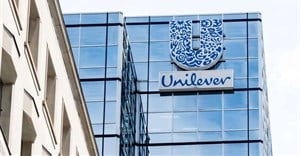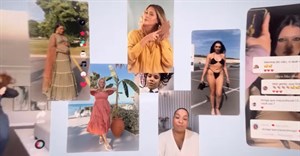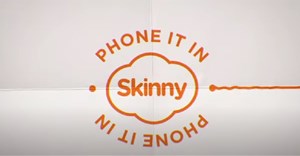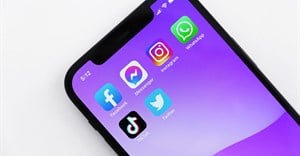
Subscribe & Follow
Jobs
- Brand Specialist Johannesburg
- Brand Manager Midrand
- Experienced 3D Generalist/VFX Artist Johannesburg
- Multimedia Motion Designer Johannesburg
- Brand Promoter Nelspruit
- Brand Manager George
- Brand Ambassador Paarl
- Brand Strategist - Agency Johannesburg
- Studio + Account Manager Cape Town
- Sales Consultant centurion
Dove soars in Cultural Traction 2013 brand study

This global study, which identifies the world's most culturally relevant brands, shows how well the decade-long campaign to build self-esteem and integrate social conscious into its marketing has worked to elevate the brand.
Compiled by brand development and marketing insight consultancy, Added Value, Cultural Traction ranks brands according to their cultural vibrancy. Its Vibe score is a composite of four factors, statistically culled from dozens of attributes that reflect cultural relevancy:
Commenting on the concept, Added Value South Africa's Dr Inka Crosswaite said measuring and understanding cultural relevance is vital for a brand's success because only culture can tell whether the brand has got it or lost it.
"Brand equity measures brand health today, an important metric for any brand. However, this provides a third dimension, a view on the strength of the brand's momentum for tomorrow. Culture is the currency of all our conversations and it is in a constant state of flux. Great brands know this and invest in marketing to stay ahead of the conversation."
Worldwide recognition
Crosswaite added that it is one thing to be a culturally vibrant brand in one part of the world; it is another to radiate that vibrancy at high amplitude across the world. This means the brand has not only tapped into global shifts in values and attitudes, but also expressed itself and engaged people in ways that resonate culturally on a local level.
The survey highlights that few brands have done a better job of taking on important issues and making one proud to be associated with their efforts, than has Dove. It is out-vibing key competitor, Nivea and is the only package goods company to receive outstanding scores for being 'Inspiring' worldwide.
In the US, the brand leads the pack on 'committed to making the world a better place' earning higher scores than any of the 60 brands in that market, with the exception of TOMS Shoes. It is truly exceptional to see 'a soap brand' appropriate this kind of territory.
Real beauty exists
Commented Crosswaite, "The decade-long campaign to build self-esteem is a lesson in the art and science of seamless integration of a social good story into a brand's equity. It taps into a fundamental insight about its target: only 4% of women consider themselves beautiful. Almost all the others just feel huge pressure to live up to a fictional and unachievable definition of beauty. The brand works in partnership with organisations, such as the Girl Scouts and, through award-winning social media campaigns, reaches millions of girls in an effort to help them feel better about being who they are.
"This 'movement' is inextricably linked to its Real Beauty brand positioning. One feeds off the other and together they invite girls and women to feel beautiful while taking part in a vision that is changing the world for the better.
"Its 'Nurturer' brand character is clear, consistent and authentic in its dialogue with girls across all touch-points. Women love this brand because it understands them and is investing earnestly to redefine beauty, instilling confidence in them rather than anxiety. Despite the fact that the campaign is almost 10 years old, its message remains fresh and its Vibe scores keep soaring."
Men also inspired
"But it's no longer just women who find it 'Inspiring'. In the US, where we measured its VIBE two years ago, we see substantial movement among men in their perception of the brand as both 'Inspiring' and 'Visionary'.
"It has made a huge investment in the Dove Men+Care line and is wisely leveraging the changing role of men in society - particularly the evolving role of fatherhood - in its marketing activities.
"While expanding its base of social advocates from mommy bloggers to daddy bloggers, it served as main sponsor at a recent 'Dad 2.0' conference. The Men+Care line also promotes the idea of being 'comfortable in your own skin', a corollary to the women's campaign, which undoubtedly is supporting the perception that the brand is leading the way."
CSI needs to resonate with brand values
The study also shows that, while investment in social good initiatives is necessary for today's leading brands to engender trust with consumers and stakeholders, it is not sufficient on its own. In order for that investment to pay out, it needs to resonate and be coherent with brand values. Starbucks is an example of a brand that is not optimising this investment.
"Starbucks has emerged from a few difficult years with outstanding business results in 2012," explained Crosswaite. "But its lofty mission 'to inspire the human spirit - one person, one cup and one neighbourhood at a time,' if brought properly to life, should generate strong scores for 'Inspiring'. Yet its rank on this dimension is lower than Coca Cola, Nescafé or even Lipton, highlighting a real problem."
Lightspeed Research executed the online study for Cultural Traction 2013 on behalf of Added Value. It polled more than 62,000 respondents in 10 countries during the latter quarter of last year. The Dove versus Nivea case study can be viewed on Dove soars clear of Nivea while the full results can be viewed at Added-Value.com.




















